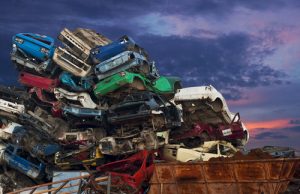 Where Do Junk Cars Go, and What Happens to Them?
Where Do Junk Cars Go, and What Happens to Them?
Junk cars are a common sight on roads and highways, abandoned in fields and left to rust away in garages and driveways. But once they are no longer drivable, where do they go? And what happens to them? In this blog post, we will explore the journey of a junk car and what happens to it after it is no longer roadworthy.
Towing to a Salvage Yard
The first step for most junk cars is to be towed to a salvage yard. Salvage yards are facilities that specialize in dismantling and recycling vehicles. They typically have space for storing hundreds or even thousands of vehicles, which are often purchased from insurance companies or individuals looking to dispose of their vehicles.
At the salvage yard, the car is evaluated to determine if it can be repaired and resold or if it is beyond repair and should be dismantled. If the car is repairable, it may be sold at a discounted price to people looking for affordable transportation.
Dismantling and Recycling
If the car is beyond repair, it is dismantled for parts or sent to a scrap metal processor. Dismantling a car involves removing any parts that can be resold or reused, such as the engine, transmission, and interior components. These parts are typically cleaned, reviewed, and cataloged in a computer system so that buyers can quickly find the parts they need. Dismantling a car can take several days or even weeks, depending on the size of the car and the number of reusable parts.
Once all the usable parts are removed, the remaining shell of the car is sent to a scrap metal processor. Scrap metal processors use powerful equipment, such as shredders and balers, to process large quantities of metal. The cars are first shredded, which breaks them down into tiny pieces. They are then separated into various types of metal, such as steel, aluminum, and copper. These metals are then melted down and recycled into new products such as cars, aircraft, appliances, and building materials.
Environmental Considerations
One of the main reasons for recycling junk cars is environmental protection. Cars have a significant impact on the environment, and properly disposing of them is critical. Dismantling a car helps to reduce waste and conserve resources by reusing and recycling vehicle components. In addition, recycling scrap metal conserves energy and reduces greenhouse gas emissions, which contribute to global warming.
However, there are still environmental concerns associated with the disposal of junk cars. For example, cars contain many hazardous substances, such as batteries, oil, and transmission fluid, which can contaminate soil and water if not disposed of properly. Advanced salvage yards follow strict environmental regulations to ensure the safe handling and disposal of these substances. They drain all fluids from the vehicle, decontaminate the vehicle, and dispose of hazardous materials in licensed waste removal facilities.
Repurposing of Parts
Many parts from junk cars are still perfectly usable and can be repurposed for new things. For example, many scrappers or enthusiasts look for rare parts from older vehicles for restoration projects. Junk car parts can also be sold online, through personal transactions, or to hobbyists who are looking to restore classic cars or turn junk cars into custom vehicles.
Repurposing of parts has a significant impact on the environment and the economy. It reduces the demand for new parts, which conserves resources and energy and lowers production costs. It also provides a source of income for people who sell or buy used car parts, supporting small businesses and creating jobs.
Conclusion
Overall, the journey of a junk car is one of recycling and repurposing. From the salvage yard to recycling facilities, junk cars are dismantled into parts, and recycled into new products. While the process can be lengthy, it benefits the environment and the economy by conserving resources, reducing waste, and providing a source of income for many. So, the next time you see an old, rusted car sitting in a field, remember that it is likely on its way to being transformed into something new and useful.
 Where Do Junk Cars Go, and What Happens to Them?
Where Do Junk Cars Go, and What Happens to Them?